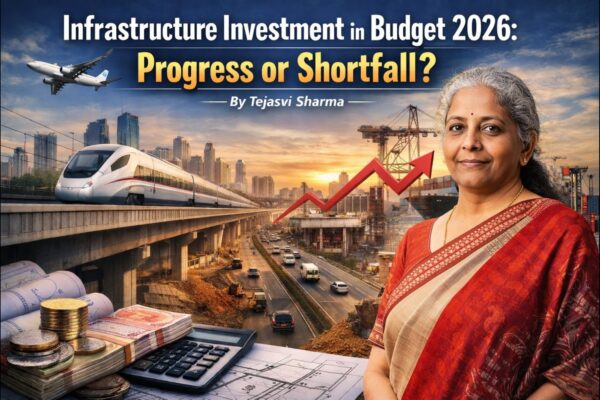Is It Wise to Invest in Real Estate in Indian Metro Cities for Short-Term Gains?
by Tejasvi Sharma, Editor-in-Chief, EPC World
In recent years, India’s metropolitan real estate markets—Mumbai, Delhi NCR, Bengaluru, Hyderabad, Pune, and Chennai—have witnessed a resurgence of investor interest. Fuelled by record-low home loan interest rates (as low as 6.5% in 2022), robust economic recovery, and the aspirational demand for premium lifestyles, urban property markets appear to be regaining momentum. Yet, as inflation, regulatory complexity, and global macroeconomic uncertainties evolve, the critical question arises: Is investing in metro city real estate a prudent strategy for short-term gains?
The Allure of Quick Returns
Historically, urban real estate in India has been a storehouse of capital appreciation. For instance, Mumbai’s Bandra-Kurla Complex (BKC) saw average residential capital values rise from ₹28,000/sq.ft in 2015 to ₹47,000/sq.ft in 2023—an impressive 68% jump over 8 years. However, that trajectory has flattened in many micro-markets.
According to Knight Frank’s India Real Estate Report 2024, average price appreciation across Tier 1 metros in 2023 ranged between 3% and 7%, whereas rental yields remained in the 2.5% to 3.5% range, often trailing inflation. For short-term investors targeting 12–24-month returns, these numbers raise red flags.
“Real estate is an excellent long-term wealth builder, but in metros, quick-flip strategies are increasingly being challenged by price saturation and delayed project deliveries,” says Anuj Puri, Chairman of ANAROCK Property Consultants.
Segments with Short-Term Promise
Despite overarching caution, select sub-segments offer pockets of opportunity for informed investors.
1. Premium Housing in Undersupplied Corridors
Micro-markets such as Central Bengaluru, Golf Course Extension (Gurgaon), and Chembur (Mumbai) have seen new launches with limited inventory. Here, pre-launch investments in projects by reputed developers (e.g., Prestige, DLF, Lodha) can offer 10–15% appreciation within 12–18 months, especially if construction progresses steadily.
2. Studio Apartments and Co-living Units
With hybrid work giving way to return-to-office mandates, compact studio units near IT and financial districts are gaining traction. In Pune’s Hinjewadi and Hyderabad’s Gachibowli, resale premiums on studio flats rose by 12–14% in 2023, primarily due to renewed rental demand.
3. Redevelopment Zones
Markets like Worli and Andheri East in Mumbai, where cluster redevelopment is unlocking prime land, have become hotspots for speculative buyers. Investors entering early in RERA-approved redevelopment projects have secured exits with 20–25% gross returns within two years.
Segments to Approach with Caution
While some sectors glitter with promise, others are less forgiving for short-term returns.
1. Affordable Housing
Although politically and socially essential, the affordable housing segment suffers from supply glut, low margins, and subdued resale interest. Localities on the peripheries of metros (e.g., Greater Noida West or Badlapur) have seen negligible price movements over the past five years.
2. Commercial Office Space (Strata Sales)
The post-pandemic shift to hybrid work has eroded the short-term viability of strata-sale office spaces. While long-term leasing yields are stable, entry-level investors struggle with liquidity and maintenance costs. Bengaluru’s Whitefield, for instance, saw secondary office sales stagnate in 2023.
3. Luxury Villas in Outskirts
The pandemic-induced demand for sprawling villas on city outskirts has cooled. In areas like Oragadam (Chennai) and New Town (Kolkata), villas launched during the COVID-19 boom are now languishing in the resale market, with negligible appreciation.
The Regulatory Drag
Investor agility is further impeded by RERA compliance, GST on under-construction units, and high stamp duty (5–7%), all of which eat into margins. Additionally, the 2-year holding period for long-term capital gains tax exemption creates a disincentive for rapid exits.
Conclusion: Caution Over Speculation
For serious investors, metro real estate remains a valuable asset class—but not a shortcut to overnight wealth. Short-term gains are possible, but only in surgically selected micro-markets, backed by deep market intelligence and trustworthy developers.
In the words of Deepak Parekh, former Chairman of HDFC, “Real estate rewards patience, discipline, and timing. Chasing quick profits often leads investors into blind alleys.”
Thus, for most, a medium-to-long-term horizon, coupled with rental yield strategies, remains the wiser path in India’s complex and maturing urban property landscape.
Tags
Related Posts
















